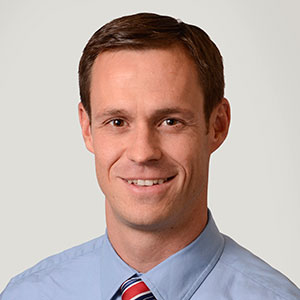Q&A: Lincoln Nadauld
Intermountain Healthcare
Q: What were the motivations to create the Oncology Precision Network (OPeN)?
Q: OPeN is a very unique relationship between Intermountain Healthcare, Stanford Cancer Institute, Providence Health & Services, and Syapse. What are the goals and benefits to each collaborator?
Q: OPeN's intent is to tap into communities across the country that are not treated by major cancer centers. How will you achieve this and what are some specifics about the approach you take to reach this goal?
Q: How much data is expected to be generated via this initiative - by when and who will have access to this data?
Q: Why are large-scale cancer genomics data sharing and collaboration efforts needed and what are the biggest challenges of sharing genomics data?
Q: Is there anything else you would like to share about OPeN with the reader base?
Speaker Profile
M.D., Ph.D., Executive Director of Precision Medicine & Precision Genomics, Intermountain Healthcare
Biography
Lincoln Nadauld, MD, PhD, is the Executive Director of Precision Medicine and Precision Genomics at Intermountain Healthcare. Dr. Nadauld recently participated in the Precision Medicine Initiative Summit and roundtables at the White House with President Barack Obama. He also attended Vice President Joe Biden’s Cancer Moonshot Summit, where the Oncology Precision Network (OPeN), spearheaded by Dr. Nadauld, was mentioned among the Vice President’s remarks. OPeN is a consortium of healthcare partners working to advance data-sharing in precision medicine, including genomic information and outcomes. Dr. Nadauld completed his undergraduate education at Brigham Young University, and went on to complete combined MD/PhD and clinical training at the University of Utah. He completed clinical training in Medical Oncology at Stanford University School of Medicine, where he completed a postdoctoral fellowship in solid tumor genomics.



